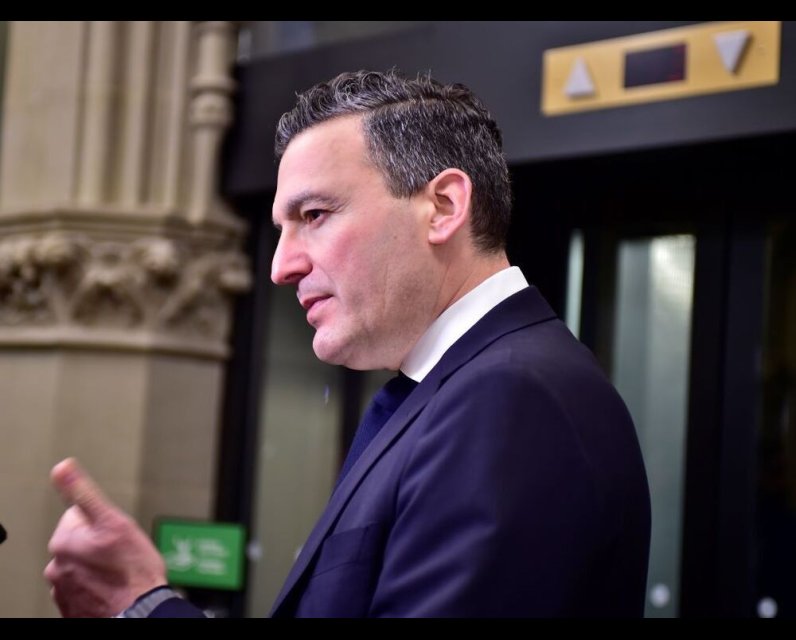Source Feed: National Post
Author: Stephanie Taylor
Publication Date: June 10, 2025 - 17:36
Who's responsible for online harms? Responsibility for troubled file floats between ministers
June 10, 2025

OTTAWA — As ministers settle into their new roles, discussions are underway about who is best suited to steer the government’s efforts to legislate against online harms, cabinet minister Steven Guilbeault said on Tuesday.
Questions have arisen about which minister and department would be best suited to handle the complicated issue after the Liberals’ proposed Online Harms Act died in Parliament when Prime Minister Mark Carney triggered a federal election in March.
“It’s a good question,” said Guilbeault, who oversees the Canadian Heritage department, told reporters on his way into the Liberals’ weekly cabinet meeting.
“We’re having conversations to see what would be the most appropriate department to bring this forward.”
Canadian Heritage had been the first department to develop and later introduce the Liberals’ initial plan to combat the harms Canadian users experience online.
That proposal, which was released in 2021, was met with widespread backlash over concerns about the requirement for social media companies to remove content within 24 hours after receiving a complaint.
Experts had warned the provision was overly broad and risked infringing on free expression, given that companies could remove legal content.
The Liberals then struck an advisory group and got to work on figuring out a Plan B.
Responsibility for the bill also shifted from Canadian Heritage to the Justice Department.
In early 2024, former justice minister Arif Vriani introduced Bill C-63, which proposed to create a new digital safety regulator that would be tasked with ensuring social media giants took steps to reduce users’ access to content, such as child sex abuse images and incite extremism and violence.
That bill was also met with backlash over its proposal to introduce stiffer sentences for hate-related offences and reintroduce a controversial section to the Canadian Human Rights Act to allow people to bring forward complaints of hate speech, which civil liberties advocates and Parliamentarians said risked violating free speech.
Virani spent months defending the need for the tougher Criminal Code measures to be included in the online safety bill, but last December announced the government was prepared to split the bill to help get it passed.
In January, former prime minister Justin Trudeau announced his resignation and that Parliament would be suspended until March.
Emily Laidlaw, a Canada Research Chair in cybersecurity law at the University of Calgary, who sat on the government’s expert advisory group, said it was a mistake for the government to have combined different provisions into the same legislation and that by the time it announced the legislation would be split, “it was too late.”
“What I’m hoping is, when they reintroduce it, they have very firmly the platform regulation law,” she says.
Should the Liberals want to propose changes to the Criminal Code or the Canadian Human Rights Act, that should be separate, she said.
Justice Minister Sean Fraser told reporters on Tuesday that the government was going to look at different measures when it comes to protecting children online, but would have more to say in the months ahead.
One new factor in how the Liberals may decide to proceed is the fact that Carney named to his cabinet the country’s first minister responsible for artificial intelligence and digital innovation, a position currently held by former broadcaster Evan Solomon, who was elected in late April’s general election.
The Liberals in their last bill listed AI-generated sexualized “deepfakes” as one of the harms companies would have to take steps to tackle.
Asked whether online harms would fall under his mandate, Solomon told reporters on Tuesday that it was “up for debate.”
“But probably yeah.”
Laidlaw said while she does not believe the government needs to start a new round of consultations, it ought to take a second look at the scope of harms it is seeking to tackle.
For example, she suggested there was room to include the issue of identity fraud.
“I actually think it should be broadened to include some of the ways that AI can be used to facilitate harm, so it might not just be the typical social media on Instagram.”
National Post
staylor@postmedia.com
Get more deep-dive National Post political coverage and analysis in your inbox with the Political Hack newsletter, where Ottawa bureau chief Stuart Thomson and political analyst Tasha Kheiriddin get at what’s really going on behind the scenes on Parliament Hill every Wednesday and Friday, exclusively for subscribers. Sign up here.
Our website is the place for the latest breaking news, exclusive scoops, longreads and provocative commentary. Please bookmark nationalpost.com and sign up for our daily newsletter, Posted, here.
The incident, detected in late 2023, prompted police to place tight security around the NDP leader.
June 12, 2025 - 05:00 | Stewart Bell | Global News - Ottawa
As city staff proceed with plans to draft an anti-protest bylaw — euphemistically called a “vulnerable infrastructure bylaw” — then report back to council, it is important to examine how, lately, the City of Ottawa has been finding different ways to row back bedrock democratic principles of public engagement, free speech and the right to protest that are guaranteed to all citizens. Read More
June 12, 2025 - 04:30 | Christina Spencer, Ottawa Citizen | Ottawa Citizen
June 12, 2025 - 04:01 | | CBC News - Canada



Comments
Be the first to comment